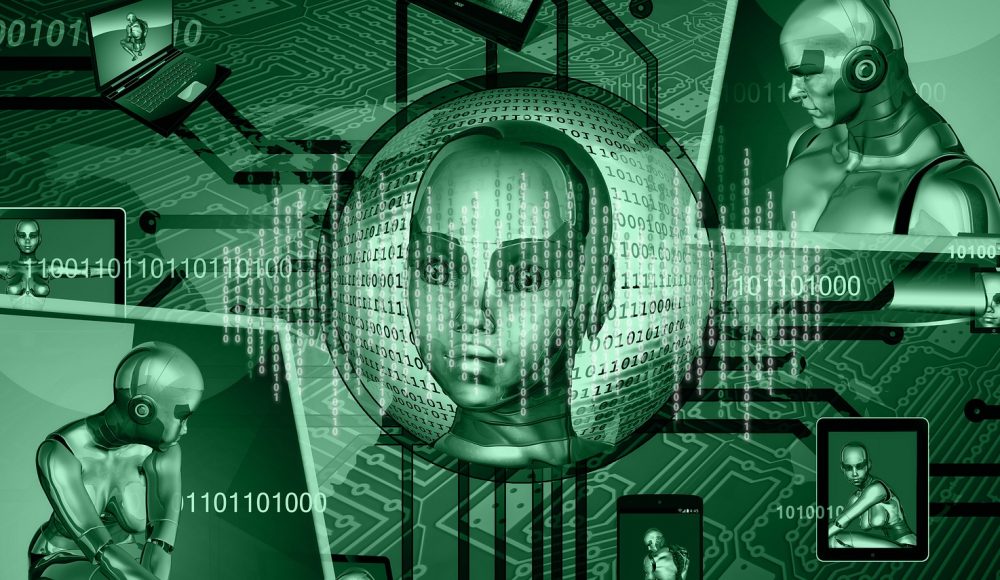Understanding the Future of Artificial Intelligence
8th February 2018

Artificial Intelligence (AI) is officially everywhere, in all industries from tech to retail, craft brewing to real-estate.
To understand where AI is today—and most importantly where it is heading—businesses and industry players need to acknowledge both the exciting possibilities and the uncertainties that the technology provides.
AI is intelligence displayed by machines, as opposed to natural intellect exhibited by humans. Any device or technology that simulates (or tries to imitate) human cognitive functions such as learning, problem-solving, or other human-provided mental activity, is artificial intelligence. The traditional goals of AI research include reasoning, knowledge, planning, learning, language processing, perception and the ability to move and manipulate objects.
AI might seem like the realm of science fiction, but you might be surprised to find out that you’re already using it. AI has a big effect on your life already, whether you’re aware of it or not, and its influence will grow in the coming years.
Thanks to AI, Google Photos recognizes faces of family members, and Facebook spams your feed. Siri and Amazon’s Alexa are intelligent digital personal assistants, who are at your disposal for finding useful information. AI is also used in fraud detection, online customer support, and purchase prediction. Self-driving cars are moving closer and closer to reality.
From tech giants and startups alike, artificial intelligence is considered the most significant opportunity in business since mobile. Its name was given by scientists at Dartmouth College in 1956 during a conference. They predicted that programmers would learn how to simulate the human brain in just a few years, but little did they now.
AI is getting ready for business, but are companies ready for AI?
Today, more than sixty years later, nearly all big tech companies have an artificial intelligence project, and the technology is beginning to touch many aspects of businesses. The demand for talent that both understands it and knows how to apply it is increasing, or in other words: the tech giants are recruiting. According to research company Paysa, Amazon is investing $228 million in new AI positions, followed by Google ($130 million) and Microsoft ($75 million).
AI is still in its infancy as a business tool. According to recent studies conducted by the McKinsey Global Institute and MIT/Boston Consulting Group, only about one-fifth of companies have implemented the technology in a meaningful way.
Big data is moving to a new stage of maturity, that promises even more significant business impact and industry disruption. As big data initiatives are developing, and organizations are now combining the use of big data processes with AI capabilities to accelerate the delivery of business value.
AI Loves Big Data
Machine learning requires lots of data to create, test and train the AI. Thus, as AI is becoming more critical to the economy, so too is data. AI now has a pervasive and palpable impact, particularly when it comes to the branch known as machine learning and as deep learning. The most notable advances in AI are coming from a data-intensive technique known as machine learning.
In a recent cover story, The Economist stated that the world’s most precious resource is no longer oil, but data. The ability to obtain data (about customers, for example), together with the ability to program AI to analyze the data will be crucial to perform better than the competitor.
Businesses and Governments Need to Act Now to Realize AI’s Full Potential
It’s clear that AI is not merely a fad. The investments into R&D are immense (more than $30 billion a year), and the ultimate impact via enhanced consumer demand and productivity is predicted to be in the trillions. It’s no surprise that AI has become the focal point among tech’s most prominent players, that it is affecting how many enterprises view their futures.
The McKinsey Global Institute and the World Economic Forum, among many others, have acknowledged the potential that AI holds in boosting economic growth globally.
It remains to be seen how the technology will eventually turn out, but it is clear that AI has the potential to reshape our society fundamentally. The technology’s ultimate cultural impact—despite all the prognostications from the likes of Mark Zuckerberg and Elon Musk—is impossible to know yet. As compelling as tech alone may be, it is the culture that will ultimately define our future.
Cornfield & Partners can help you with understanding global market opportunities related to artificial intelligence and big data. To find out more about potential business opportunities, contact info@cornfieldpartners.com or you can call us on +44 (0) 20 7692 0873
